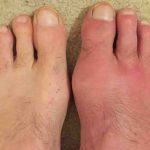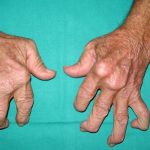Fibromyalgia is a pain disorder that is associated with the following main symptoms: muscle pain, tenderness, and fatigue. However, it is also characterized by issues with memory, sleep, and mood. Although there has not been a definite answer found when it comes to the cause of this medical condition, some researchers have found a link between fibromyalgia and an overactive nervous system, which causes painful stimuli to be experienced even more intensely. One issue with fibromyalgia is that it is very hard to diagnose. There is no blood work, x-ray, or scan that can diagnose fibromyalgia. Moreover, it is often misdiagnosed as it shares a lot of the same symptoms as other similar health conditions. Symptoms of fibromyalgia can seemingly come out of nowhere and become worse with time. Certain things can further aggravate fibromyalgia symptoms such as experiencing physical trauma, surgery, various infections, and extreme levels of psychological stress. Unfortunately, at present time there is no known cure for fibromyalgia. Luckily, however, there are certain things that can alleviate symptoms such as medications, exercise and certain relaxation techniques. Keep reading to learn more about the most common fibromyalgia symptoms such as memory loss and extreme fatigue.
Difficulty Sleeping

As we mentioned above, difficulty sleeping is one of the most common fibromyalgia symptoms. A whopping seventy-five percent of individuals with this condition report having sleep issues. More specifically, these sleep issues are feelings of unrest upon waking and issues falling and/or staying asleep during the night, also known as insomnia. Individuals with fibromyalgia do not experience sleep that is neither deep nor restorative. Another common sleep issue that many with fibromyalgia experience is known as restless leg syndrome, which causes the individual to experience uncomfortable sensations in the legs in addition to other parts of the body. This uncomfortable sensation is often described as the irresistible urge to move the limbs. Yet another sleep issue is a condition known as sleep apnea, which causes breathing disruptions while sleeping. Many people with sleep apnea stop breathing completely as many as hundreds of times during a night’s sleep, which can result in the brain being deprived of oxygen. More often than not, those with sleep apnea do not realize that they have this condition until a friend or partner informs them that they seem to stop breathing during the night. If you have reason to believe that you have sleep apnea, it is essential to seek treatment right away since if it is not treated right away it can lead to a variety of serious conditions such as high blood pressure, stroke, diabetes, and heart failure.
Hit READ MORE to continue article
More from Things Health
-
The Most Common Symptoms of Fibromyalgia
Fibromyalgia affects almost six million Americans. It is a pain disorder that influences the musculoskeletal system and alters the way that pain is processed by…
-
Symptoms of Gout
Gout is a form of inflammatory arthritis characterized by recurrent attacks of a red, tender, hot, and swollen joint. Pain typically comes on rapidly in…
-
Symptoms Of Rheumatoid Arthritis
Rheumatoid arthritis is a chronic autoimmune illness, which accompanies irritation of the joints and apparent deformities. Maybe a virus, causes an attack on the synovium…
-
Living With Fibromyalgia
Fibromyalgia syndrome affects the muscles and soft tissue. Symptoms include chronic muscle pain, fatigue, sleep problems, and painful tender points or trigger points, which can…
-
Symptoms Of An Ulcer
A peptic ulcer is an open sore in the top digestion tract. Both primary kinds of peptic ulcers, a gastric ulcer, which forms in the…


















